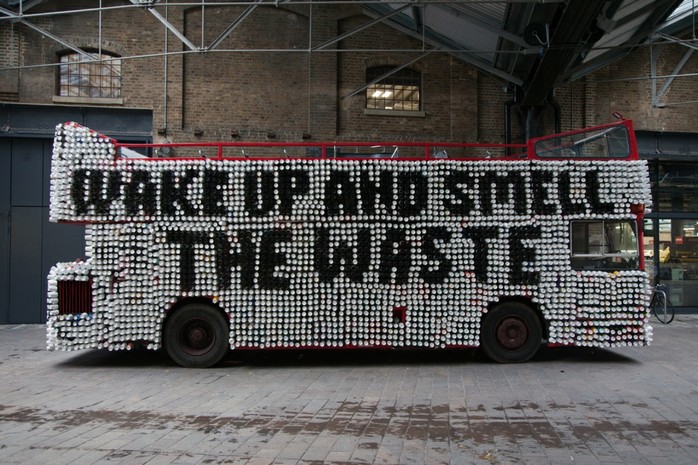Over 2.6 million coffee cups are thrown in Vancouver’s garbage EVERY WEEK. That is approximately 135 million cups per year! This number only represents Vancouver which is only one city amongst thousands of others that also use an alarming number of disposable coffee cups. The UK throws away 49 million cups every week, and Australians throw away around 19 million cups every week. These numbers add up so quickly and there is such an easy solution that could vastly decrease the waste that coffee sales generate – use a reusable cup! However, the number of people that would actually be on board with bring a reusable cup for their morning/afternoon/anytime coffee is a very minuscule number in the grand scheme. Most people don’t know about how many cups are being used or just don’t care, so I believe cities need to think of creative ways to combat this issue.
If you didn’t know already, a paper coffee cup (although most people assume is recyclable) is not actually recyclable as a whole cup because of a plastic or wax lining on the inside. Most cities separate their paper and plastics recycling making it hard for them to deal with coffee cups. “What about the coffee cup recycling bin I see in coffee shops then?” is something you may ask, however many companies end up throwing these into the garbage because they don’t want to deal with it (as can be seen in the following video). However, coffee cups CAN be recycled at speciality recycling facilities that provide an extra step to separate the plastic from the paper.
A few ways that cities around the world are dealing with coffee cups include:
- Vancouver – putting a deposit on coffee cups to solve not only the problem of waste, but also poverty as many individuals in Vancouver make an income purely based on bottle deposits
- Melbourne – created an awareness campaign for the city by filling a tram with disposable cups and encouraging people to instead bring their own cups
- London – CupClub is the world’s first reusable, shared coffee cup system (think Mobi bikes but for coffee) launching in January 2018
There are several other cities that are also doing their part in working to reduce the waste that is generated from many people’s beloved pastime – coffee. I think the future definitely holds a lot of room for innovation in this field and I am intrigued to find out what will be happening down the road.
